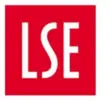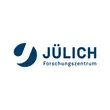-
- Postdoc Job
- Posted 1 day ago
Postdoctoral Researcher in Empirical Microeconomics (m/f/d)
At Düsseldorf Institute for Competition Economics (DICE) - University of Düsseldorf in Düsseldorf, Germany
-
- Researcher / Analyst Job, Practitioner / Consultant Job
- Posted 1 day ago
(Senior) Referent/in (m/w/d) mit dem Schwerpunkt Öffentliche Finanzen
At Sachverständigenrat zur Begutachtung der gesamtwirtschaftlichen Entwicklung in Berlin, Germany
-
- Research Assistant / Technician Job
- Posted 4 days ago
Research Assistant on a part-time basis (50%) for our Research Centre
At Deutsche Bundesbank in Frankfurt am Main, Germany en de
-
- Postdoc Job
- Posted 4 days ago
Postdoctoral Researcher in Behavioral/ Experimental Economics (m/f/d)
At Düsseldorf Institute for Competition Economics (DICE) - University of Düsseldorf in Düsseldorf, Germany
-
- PhD Program, Program, PhD Candidate Job
- Posted 2 days ago
Doctoral Position in Macroeconomics
At University of Konstanz in Konstanz, Germany
-
- Postdoc Job
- Posted 1 day ago
Postdoctoral position in applied microeconomics (80%)
At University of Neuchâtel (Switzerland), Faculty of Economics in Neuchâtel, Switzerland
-
- Researcher / Analyst Job
- (Hybrid)
- Posted 2 days ago
Research Analyst Climate
At Economic and Social Research Institute (ESRI) in Dublin, Ireland
-
- Postdoc Job
- Posted 2 days ago
3 Postdoctoral Positions in "Health Economics and Aging Lab" - HEAL
At University of Copenhagen in Copenhagen, Denmark
-
- Research Assistant / Technician Job
- Posted 1 week ago
Research Assistant (PhD Student) position (m-f-d)
At Martin-Luther-Universität Halle-Wittenberg in Halle (Saale), Germany
-
- Postdoc Job
- Posted 4 days ago
BioNTech-Health Economics and Outcomes Research (HEOR) Postdoctoral Research Fellow
At Northeastern University London in Boston, United States
-
- Practitioner / Consultant Job
- Posted 4 days ago
Energy Economist, Assistant Director, EY Parthenon, London
At EY in London, United Kingdom
-
- Research Assistant / Technician Job
- Posted 3 days ago
Research Assistant, Public Economics Programme
At London School of Economics and Political Science in London, United Kingdom
-
- Internship
- Posted 3 days ago
Summer Intern, Economics
At European Bank for Reconstruction and Development (EBRD) in London, United Kingdom
-
- PhD Candidate Job
- Posted 3 days ago
Global Macro Research, Economics, PhD Fellowship, London
At Goldman Sachs in London, United Kingdom
-
- PhD Candidate Job
- Posted 4 days ago
Doktorand:in – Modellierung zukünftiger Energieverbräuche im Wohnsektor (w/m/d)
At Forschungszentrum Jülich in Jülich, Germany
-
- Practitioner / Consultant Job
- Posted 4 days ago
Strategic Economist - Belfast
At KPMG in Belfast, United Kingdom
-
- PhD Candidate Job
- Posted 5 days ago
Doktorand:in – Additive Fertigung und Ressourcenstrategien für die Energiewende (w/m/d)
At Forschungszentrum Jülich in Jülich, Germany
-
- Assistant Professor / Lecturer Job
- Posted 6 days ago
Associate Professorship in Innovation Management
At University of Southern Denmark in Odense, Denmark
-
- Research Assistant / Technician Job, Postdoc Job, PhD Candidate Job
- Posted 1 week ago
Research Assistant, PhD Candidate, Postdoctoral Researcher (m/f/d)
At Universität Hohenheim
-
- Assistant Professor / Lecturer Job
- Posted 1 week ago
Associate / Assistant Professor / Lecturer in Economics
At Wenzhou Business College in Hong Kong SAR China
-
- Professor Job
- Posted 1 week ago
Economics Adjunct Faculty (DAY COURSES) - Fall 2026
At Union College of Union County in Cranford, United States
-
- PhD Candidate Job
- Posted 1 week ago
PhD Position in Public Economics
At University of Fribourg (Switzerland) in Fribourg, Switzerland
-
- Assistant Professor / Lecturer Job
- Posted 1 week ago
Assistant Professor, Empirical Urban Economics of Transportation Electrification
At Concordia University in Canada
-
- Postdoc Job
- Posted 2 weeks ago
Postdoctoral Research Scholar: Accelerating Asia's Decarbonization Through Trade and Investment Policies
At University of California San Diego - Economics Department in San Diego, United States
-
- PhD Candidate Job
- Posted 1 week ago
PhD Position in Technology & Operations Management

Pagination

















